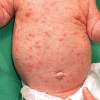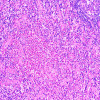
 IJCP Editorial Team
IJCP Editorial Team
Role of Intracytoplasmic sperm injection in IVF treatments in patients with advanced maternal age or low oocyte number.
Intracytoplasmic sperm injection (ICSI) was meant to achieve fertilization in cases of severe male factor infertility. However, it is often used in cases of non-male factor infertility, such as advanced maternal age or low oocyte number, but the clinical benefit of the method in these indications is yet debatable.
The present study included patients with ≥40 years of age and/or ≤4 oocytes with non-sever male factor infertility and randomized them into conventional IVF or ICSI groups. It then compared the Fertilization rate, embryo quality, implantation, clinical pregnancy, and live birth rates.
The study observed-
- Inclusion of 336 IVF cycles (169 conventional IVF and 167 ICSI) in the study.
- Higher fertilization rate in the conventional IVF group than in the ICSI group.
- No considerable difference between groups regarding embryo development and morphology.
- Implantation, clinical pregnancy, and live birth rates were 13.1%, 24.3%, and 11.4% in the conventional IVF and 10.4%, 19.0%, and 12.0% in the ICSI group.
- No significant differences.
- A significantly better clinical outcome following conventional IVF when advanced maternal age was accompanied by low oocyte number.
This study shows a significantly higher fertilization rate, a tendency for a higher clinical pregnancy rate in conventional IVF treatments than in ICSI. However, when advanced maternal age was associated with a low oocyte number, ICSI caused a substantially lower chance of fertilization and clinical pregnancy. These data suggest that ICSI offers no advantage over conventional IVF regarding fertilization, embryo quality, implantation, and pregnancy rates for couples with advanced maternal age or with low oocyte numbers.
Fancsovits P, et al. Intracytoplasmic sperm injection does not improve the outcome of IVF treatments in patients with advanced maternal age or low oocyte number: A randomized controlled trial. Journal of Gynecology Obstetrics and Human Reproduction. 2023;52(8). https://doi.org/10.1016/j.jogoh.2023.102625

IJCP Editorial Team
Comprising seasoned professionals and experts from the medical field, the IJCP editorial team is dedicated to delivering timely and accurate content and thriving to provide attention-grabbing information for the readers. What sets them apart are their diverse expertise, spanning academia, research, and clinical practice, and their dedication to upholding the highest standards of quality and integrity. With a wealth of experience and a commitment to excellence, the IJCP editorial team strives to provide valuable perspectives, the latest trends, and in-depth analyses across various medical domains, all in a way that keeps you interested and engaged.













Please login to comment on this article